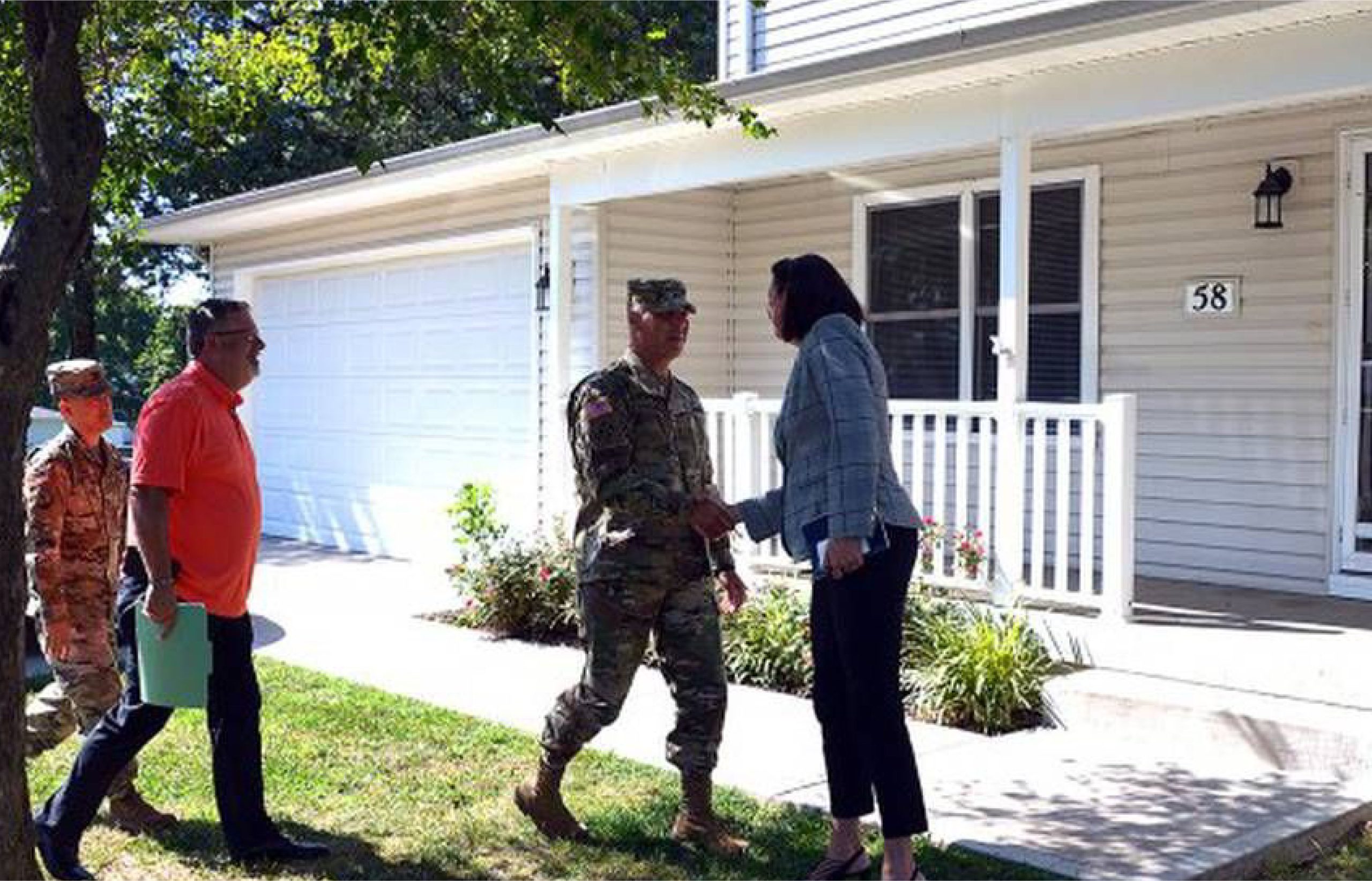Are you a service member or military spouse preparing to make the move? There are a lot of factors to consider when it comes to housing, the biggest being whether you’re hoping to live on-base or off-base, and either option has ramifications at different stages in the housing process. Read on for tips and resources to help you make your decision and make your military housing experience as hassle-free as possible.
On-Base, Off-Base: Which is Better?
The simple truth is that both options have pros and cons; it’s up to you to decide what is best for your family.
While on-base housing has the convenience factor, it also comes with certain drawbacks. Some of those conveniences include the fact that most bases have grocery stores, post offices, and more– you won’t have to go far to get what you need for your family. It’s low-hassle to move on-base, unless there’s a waitlist, and your utilities are already taken care of. With off-base housing, the biggest factor for military families to consider is that your situation can change easily (such as deployment) and off-base landlords and property management companies might not have an established process for short-notice move-out, like they would do on-base. It can also be more budget-friendly in a variety of ways: bases can sometimes have extra amenities, like gym memberships, and the commute is shorter, so you’re spending less on gas. However, on-base housing can be limiting, both in the variety of what is offered and what you are allowed to do in your living space. You’re not allowed to make modifications like painting, and there might also be limits on pets and outdoor decorations.
If the freedom to do as you wish in your housing situation is weighted more heavily for you than the convenience and cost factors, then living off-base might be the right choice. Instead of having the Basic Allowance for Housing (BAH) deducted from your paychecks for on-base housing, you might be able to use your BAH to set up residence off-base. You can use this salary calculator from Today’s Military to see how much your family could receive for your BAH, conveniently broken down and separated from the base pay.
It also might surprise you to learn that it’s easier than you think to consider home ownership. This would provide you stability and the flexibility your family needs no matter what the circumstances might be now or in the future. There are a few programs available for you to peruse:
- Military Housing Assistance Fund, which allows military families to apply for gift funds to purchase a home. These funds do not have to be paid back.
Soldier Next Door is a national home buying program for former and active military members. They offer grants, down payment assistance, and more.
VA loans on USA.gov, which are available for active service members as well.
Whatever choice you make, there are plenty of online resources to help connect you:
Military One Source– this DoD site helps military families learn more about what they can expect on-base, contact numbers and emails, procedures, and information about the surrounding local community
Homes.MIL– connects military families with community rentals near base
AHOUS– includes an on-base housing waitlist, cost estimator for off-base living, home buying programs, and other useful military housing information
Getting Ready for Move-Out Inspection
If you choose to stay in on-base housing, it’s important to make sure you understand the move-out process. Depending on your station, the specific process may vary (which should be included in the online resources available on the specific station’s website.) However, there are a few basic steps you can expect when moving out:
File a Notice to Vacate (NTV) at least 30 days before your move date.
Final Inspection
The final inspection can be stressful; most, if not all, bases have strict guidelines, policies, and fee schedules. Here are a few things you can do to ensure that the final inspection goes smoothly:
Get clarity on your housing responsibilities– what are you responsible for fixing before moving out? Check with your housing office to see if they might have a cleaning and moving checklist.
Schedule (or perform) repairs as early as possible, before the inspection
Clean the house really well, inside and outside; consult the checklist mentioned above
Overall, the best thing you can do is prepare yourself by asking for as much information ahead of time as possible. The move-in and move-out process as a military family can be incredibly stressful, but it doesn’t have to be if you stay informed.

